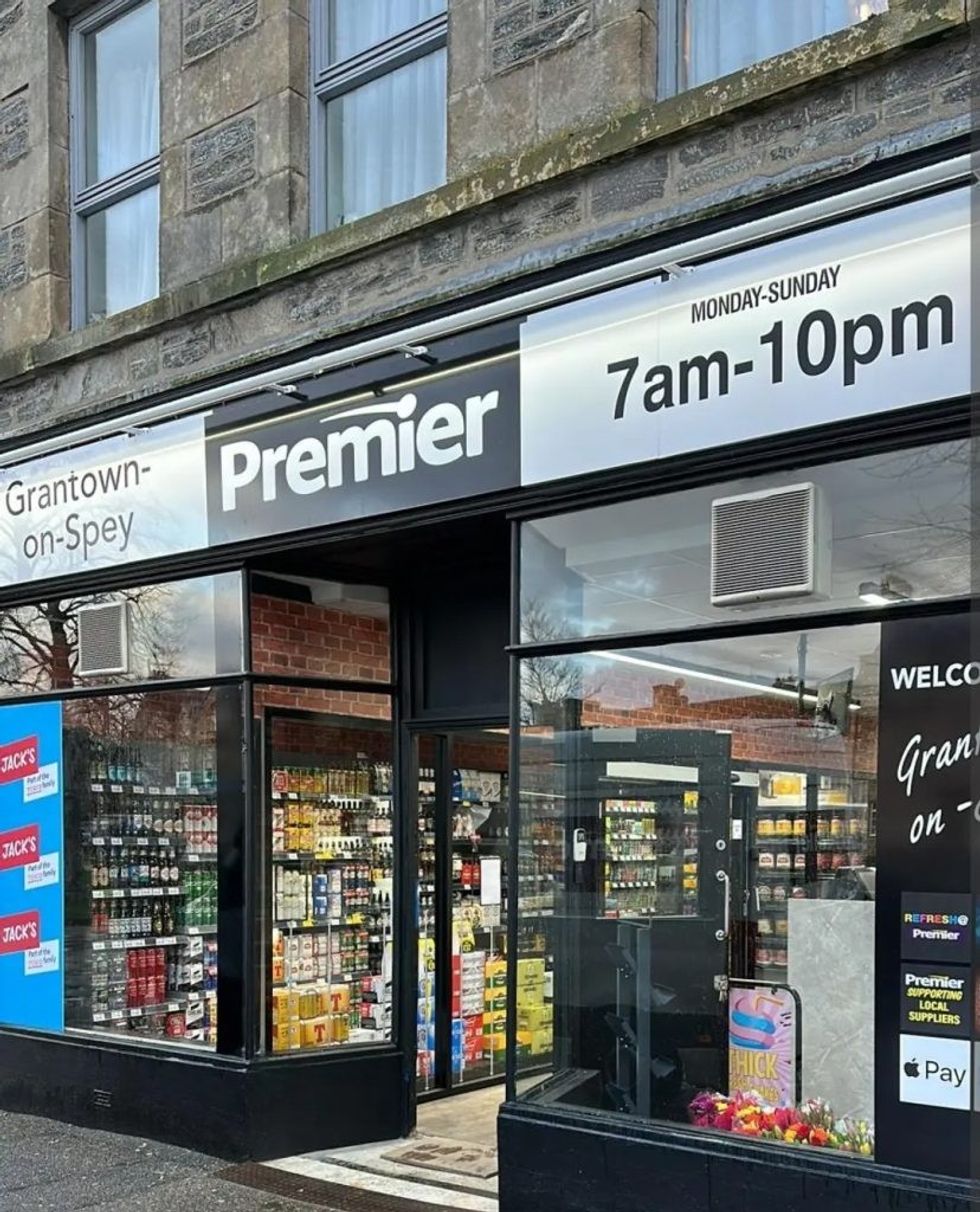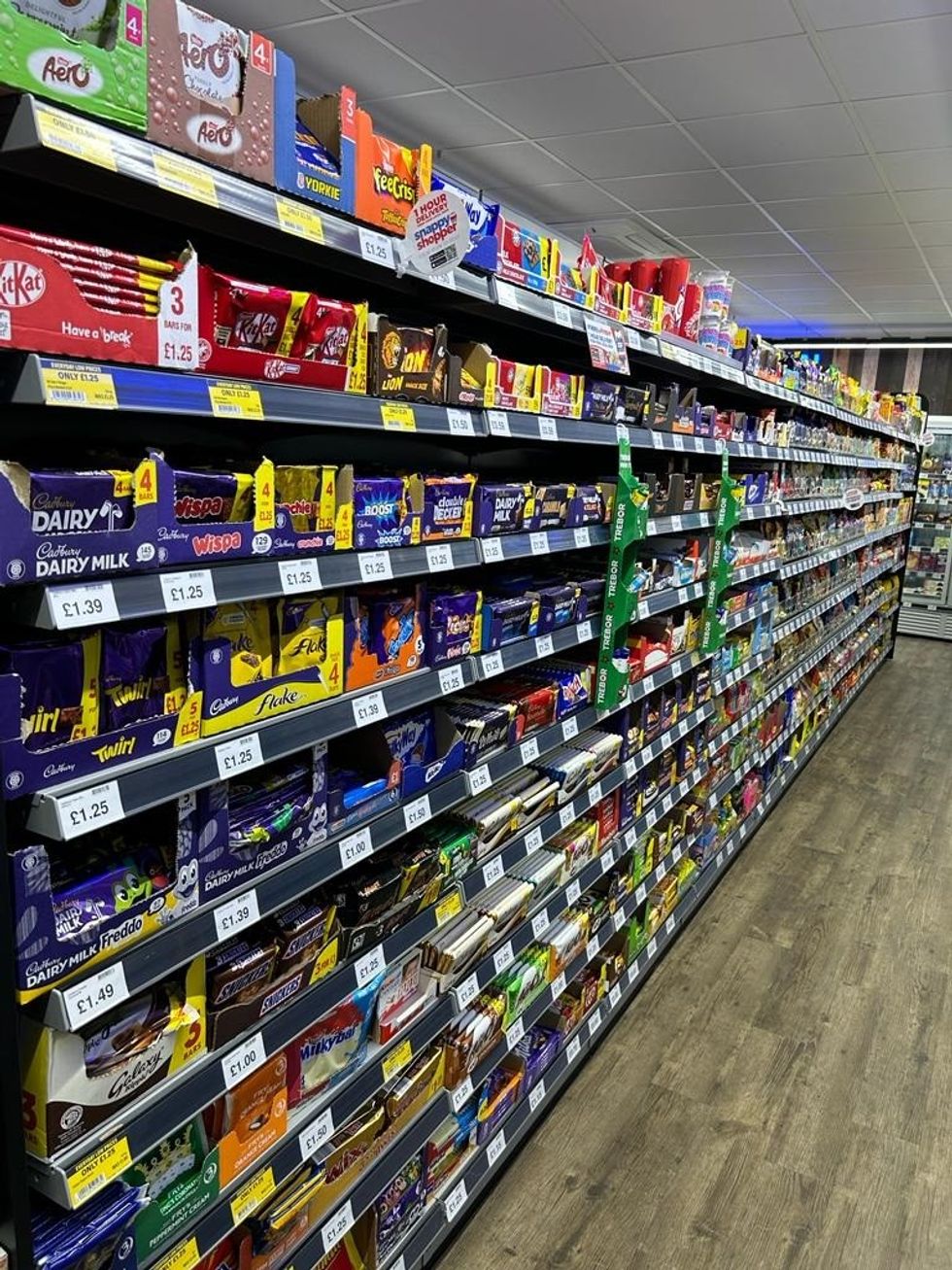Determined c-store entrepreneur Arul Palaniappan has built an empire in Scotland through creative planning, training, and embracing local
Arul Palaniappan's journey in the UK began 20 years ago when he arrived as a student to Middlesex University. Today, he stands as a prominent figure in the retail industry, building a thriving chain of successful stores in Scotland – a story of perseverance, strategic thinking, and a deep understanding of the retail landscape recognised at last year’s Asian Trader Awards with the Convenience Chain of the Year honour.
Arul, who will turn 43 next month, studied computer networks for his Masters degree, and worked part time at Sainsbury’s where he first caught the retailing bug. He quickly found himself in a managerial position at Sainsbury's on finishing his degree, and for four years, he honed his skills as a store manager, gaining invaluable experience that would later serve as the foundation for his entrepreneurial endeavors.
“With corporates, you can learn the likes of budgeting your stores and how much margin you're going to make, and out of those margins, work out overheads, and be able to analyse the store's performance and expected bottom line. That's what I learned from multiples,” he says.
“With the extensive training package that they provide, an eye for detail and all those legal bits you get to learn with them help you massively. Transition from just running a shop to several shops as a corporate retailer comes easy when we have that training and experience.”
By 2011, Arul had embarked on his entrepreneurial journey, initially running a petrol station on commission with MRH. This experience laid the groundwork for his future ventures. In 2018, he took a significant step by purchasing his first convenience store, along with his friends. However, it wasn't until 2021 that Arul and his business partner, Prabhu Vaiyapuri, who is also a relative, decided to go solo and establish their own company, which has since grown to encompass 16 stores, including four petrol stations, and employs around 127 people.
For Arul, the decision to transition from a managerial role to owning his stores was driven by a deep-seated desire to be an entrepreneur. “If I could do this for somebody else, why not for myself?” he reflects. Coming from a business-oriented family in the southern Indian state of Tamil Nadu, with his father and brother both being businessmen, Arul always had the entrepreneurial spirit in his blood.
“Working at Sainsbury's was only a short-term plan, because I needed investment to start my own. And I don't regret it a bit. I've been working hard for that many years, and I learned well how retail works. That experience gave me the confidence and the ability to do what I did,” he says.
Securing footfall
His strategy to grow the business focuses on first securing the footfall, with a focus on margin at a later date.
“The unique selling point is giving the consumers the confidence that every time they walk into any of our stores, get a quality product for the best price they can get out there and of course with a smile.”
Once you gain customers' confidence, they will stick with you and spread the word, Arul explains, adding that customer service is equally important. He believes that the ethos of customer service should come from the top and be instilled in every team member.
“I hate seeing queues, and if there is a queue, the first thing I'll discuss with my team will be how to address this issue. I believe in providing the best service goes a long way and it costs us nothing. It is important that my colleagues all understand the importance of that. After all, they are the face of our company” he says.
“So making them understand, giving them that training and consistently talking about it within our team is really key.”
Embracing local trends
Arul’s stores have seen considerable success by focusing on local produce. He highlights the importance of local produce and in-house products, such as their own sandwiches and cheesecakes and planning for a bakery. “Local produce and some of our own products seem to be doing really well,” he notes. The proximity to local farms allows his stores to offer fresh, locally sourced products, which resonate with customers.
He illustrates this with the example of strawberries: “We sell strawberries from Booker all year long, but during summer, we get these from a farm next to us and the difference in sales is astonishing.”
This focus on local produce not only boosts sales but also fosters a sense of community and trust among customers. “Customers feel connected and that's what they like. They know where it is coming from,” he says.
Arul’s approach to selecting new store locations is pragmatic and customer-focused. “It doesn't matter about location. You do the best wherever you are. And if you stand out, you will definitely gain more numbers than others,” he asserts.
He looks at factors such as the number of people around the store, size and the potential difference his store can make. “Obviously we can’t compete with the multiples the likes of Aldi, Lidl, or Tesco. But we can give the best service and the best price to the folks, and they will stick to us. That's what I have seen,” he adds.
Technology rules
For Arul, technology is the backbone of modern retail operations. Technology is integral to all aspects of his business, from online home deliveries to bookkeeping and communication. “It's all about technology these days, isn't it?” he notes.
His stores have embraced electronic shelf edge labels, a move that has streamlined pricing updates and improved operational efficiency. “We've gone for electronic shelf edge labels in all of our stores. We've gone for online delivery apps. We've gone for social media. Anything you name it, we probably have it in one of our stores,” he says.
The rollout of electronic shelf edge labels is a significant investment. "We tried electronic shelf edge labels in one of our sites, and it seems to be working really well. So we plan to roll that out to all of our estate over the next 12 months,” he explains. This move is expected to cost around a million pounds but is seen as a vital step in maintaining competitive edge.
Additionally, Arul’s adoption of a centralised head office system to control pricing and operations across all stores ensures consistency and leverages bulk buying power. “We have the buying power now, and we go to different suppliers and ask them for a deal, and when the deal is right, we buy them bulk, we stack them high, and sell them cheap to our customers,” he says.
The online delivery landscape has seen significant growth, and Arul has leveraged this trend to expand his reach. He has integrated Snappy Shopper for half of his estate, recognising its strong market presence and marketing prowess, particularly in Scotland.
“They've got a good market share in Scotland. Everybody knows what Snappy Shopper is,” he says. While creating a bespoke app could offer more control, the marketing and brand recognition that Snappy Shopper brings are invaluable, he adds.
‘Grow with style’
He has been with Booker all the time, but Arul is now exploring new supplier partnerships to diversify his offerings. He opened his first Nisa Local store last month and has plans to open more, as he aims to compare different symbol groups to determine the best fit for his stores.
“Premier is a great brand. In fact a major player in our growth right from the start. Nisa is good in different ways,” he remarks. “One size fits all doesn’t work for us. One store is not the same as another. We are doing different trials with brands at the moment, and see how it goes.”
And his approach to expansion is also fluid. “I just go with the flow. I've got no plans, no targets, nothing,” he says. Despite this seemingly laissez-faire attitude, he anticipates significant growth, with seven to eight stores in the pipeline. By the end of 2025, he expects to operate between 25 and 30 stores, although he remains conservative in his projections. “It could be more,” he says.
For those looking to expand in the sector, Arul’s advice is to ensure consistency and quality across all locations. “The key thing here is to grow with style,” he says. “If you're moving on to the next store, make sure both stores are consistent in terms of standards, that both stores are growing together.”
He stresses the importance of having the right infrastructure in place before scaling up. “Expand with a fashion. That's the right word. So expand in a style.”
Arul acknowledges that his business is still refining its systems, but he advocates for a structured approach to growth. “Have an infrastructure before you want to grow in the size you want to grow,” he advises, highlighting the need for a strong foundation.
Business and personal
Balancing the demands of a growing business and personal life has been a learning curve for Arul. “It was difficult in the beginning, when we were trying to make ends meet, when we started with just one shop. It was long hours, no time for kids and family,” he recalls.
A father of two, with children aged eight and 12, Arul now finds more time for his family, and he credits this to better planning. “I'm definitely seeing them more than before, spending time with them more than before. Family is the most important thing for me, after all,” he says.
He also emphasises the importance of planning to achieve this balance. “If you don't plan your weeks ahead, then you're not getting the best out of it, then you're running around and you're not balancing your life. But yes, I think I learned to plan a bit better than before. I find time for everything these days,” he explains.
Family plays a significant role in Arul’s business, with spouses of both partners being actively involved in the operations.
As he reflects on his career, Arul says he is a happy man. “I'm really happy that we are doing what we're doing because we enjoy it,” he says.
“I don't know if I'm particularly proud of anything I've done. [But I’m] proud of where we came from, and where we are now. And that's about it. The whole journey is all about enjoying it, isn't it? I am certainly enjoying it.”









